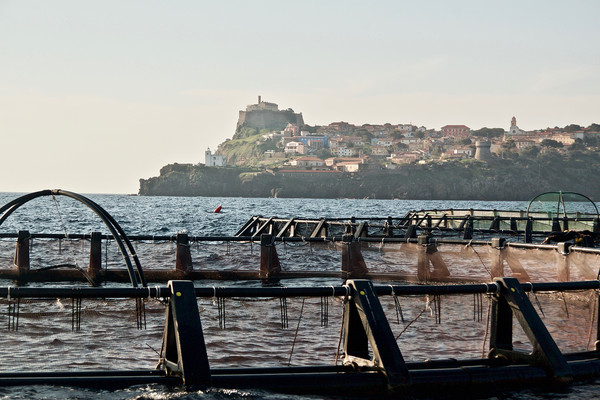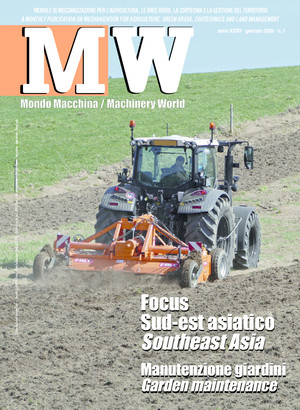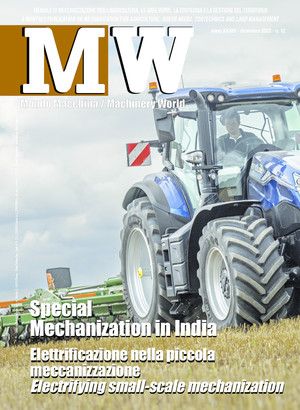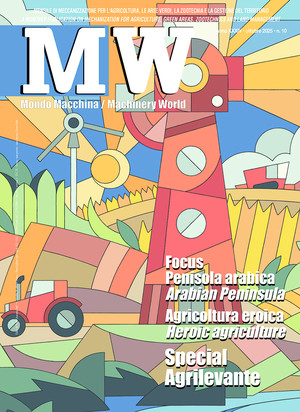
Circular economy for the Mediterranean islands
During a second meeting, held in Capraia, an island of the National Park of the Tuscan Arcipelago, the focus was on the developments occurred over the last year, since the start of the project. From the enthusiasm of a consistent group of experts in environmental issues, arose the conditions for reducing the use of fossil fuels, exploiting local resources and promoting a responsible entrepreneurship. The model of development thought for the island captured the interest of big foreign companies, that have established the first agreements – profitable in an economic and environmental perspective – with local companies
It is well known that Europe is, for a long time now, in the front line of the fight to climate change by promoting various types of measures, such as the use of RES (Renewable Energy Sources), energy efficiency and a responsible use of natural resources.
Today more than ever, each one is called to make, on a daily basis, choices that are responsible and able to influence – although to a minor extent – the destiny of the earth. Furthermore, monitoring the experiences that promote good practices and innovative technologies has become a key point.
An interesting case is represented by the island of Capraia where, in May 2017, tens of relevant experts met for some days to identify a series of possible initiatives to take locally in the field of the circular economy. The objective was creating a pilot model of sustainable development, a “Flagship Project” applicable to the small islands of the Mediterranean, as well as to other places worldwide. The many considerations arisen during the work days have been carefully collected in a publication that is rich in figures and objectives. Eima Energy, the exhibition to be held in Bologna within EIMA International from 7 to 11 November, will offer an opportunity to illustrate the developments of this initiative and involve the agricultural mechanization sector in an inclusive project that, as all the projects linked to supply chains, involves mechanical technologies.
Capraia, in this research of balance between anthropic activities and its territory, can turn into a real open-air workshop, the results of which might be transferred to other contexts in which the isolation is given by geographic barriers such as mountains. This initiative, called “Capraia Smart Island” has been promoted and coordinated by a group of work composed of representatives of accredited associations, research bodies and service companies such as: Sofia Mannelli (President of the Green Chemistry Association), Matteo Monni (Vice-president of ITABIA – Italian Biomass Association), Francesco Ferrante (Vice-President of the Kyoto Club), Francesco Petracchini (researcher at CNR IIA), Camillo Palermo (project manager at ASA S.p.A., single managing body for the Integrated Aqueduct System of Tuscany.) The goal envisaged consists of an economic system capable of continuously recreating itself. In this way, energy supply differs significantly from fossil fuels and goes towards renewable and more efficient sources, with energy-saving and quality of raw materials as part of a strategy of local development. With this approach in mind, the concept of smart economy has widened beyond the cycle of waste to include renewable energy, sustainable mobility and energy efficiency of buildings. These aspects are all necessary, but they are not sufficient! The aim is that of working on other issues such as water, agriculture, fishing and the harbor that shall be transformed into an eco district.
After the success of the first meeting (see Mondo Maccchina
nr. 7-9 2017) on May 17 and 18 another event took place in Capraia and was focued on two specific issues: agriculture (efficient use of water and resources) and waste (separate collection and closing the materials loop). In this occasion, 40 technicians – composed of scientists and entrepreneurs – reached the island to spread their knowledge to local residents.
During a meeting dedicated to the entire population, including students of local schools, it was highlighted that the implementation of projects was generally positive after only one year of activity. First of all, some calls for tender were identified to fund a wide range of initiatives in Capraia.
Among these initiatives, greater hope is placed in the approval of the 2020 Horizon Project called PEARLS, an acronymous summarizing the aim of promoting the use of local renewable sources for energy production on the island (Penetration of Alternative Renewable Energy Local Sources in Islands.) The project proposal, presented in April this year, has developed an excellent partnership under the Italian leadership, the CNR coordination and the precious involvement of ENEL Green Power. The islands selected to test these activities and spread their results are, in addition to Capraia, Ibiza (Spain), Oland (Sweden) and Mljet (Croatia).
Meanwhile, in Capraia other project activities have been already approved, among which a comprehensive program coordinated by Enrico Palchetti from the Florence University. This project includes a close collaboration between University and several local farms for the recovery of ancient and precious terracing with its relevant systems of rainwater captation, collection and distribution.
A special note goes to the “Capraia Smart Island” project because, up to present day and without any funding, the entire work has been based on the voluntary commitment of a consistent group of technicians and scientists. These experts have been capable of transferring, since the beginning, their enthusiasm to the island’s population, that now is completely involved in a project that could apparently seem utopian.
In fact, many relations have been established between residents and companies operating within the circular economy on a global scale. Only to mention some examples, during the last meeting, thanks to the involvement of the Green Evolution – an Italian company promoting bioeconomy worldwide – the Dutch Synbra Technology donated to the “Valle di Portovecchio” farm in Capraia a special composter that can work efficiently in any period of the year.
Moreover, Jan Noordegraaf, CEO of the same Dutch industrial group, has signed an agreement with Maricoltura e Ricerca Coop of Capraia for supplying special containers at low prices for the storage of their organic fish reared in fish farms at sea. These containers are manufactured in BIOFOAM™, an expanded, biodegradable and compostable biopolymer that will replace polystyrene containers that have a huge impact on marine environment and higher disposal costs.
This is a significant signal to fight the problem of marine litter, which is affecting the entire world. It is estimated that an irrational overuse of disposable plastic items (500 billion shoppers and 4,000 billion of bottles every year) determines the presence of an enormous number of small plastic particles that inevitably enter into the feed chain of marine micro-organisms and fishes. If appropriate measures are not immediately undertaken – scientists say – by 2050 there will be more plastics in the sea than fish by weight.
This simple operation will have a series of both direct and indirect repercussions even in apparently unconnected contexts. For instance, it will be possible to return organic nutrients to the agricultural soil by composting biopolymer containers with the organic fraction of municipal solid waste (OFMSW) and prunings (a type of material that, after compaction, is sent to Livorno with high environmental, economic and social costs.) In summary, a virtuous cycle has been developed to connect sea and earth, reduce the use of fossil fuels, turn waste into soil improvers, and promote a responsible entrepreneurship. In this way, new market niches are created for bio-products as well as new jobs: the objective is to deal global issues and contain the phenomenon of climate change. The propensity of local inhabitants to welcome innovation has proven to be a key element of the community with host-driven initiatives in compliance with old traditions. The Italian-English owner of the San Giorgio Castle has opened the doors of the fifteenth-century building for a spectacular refreshment offered by the local fishery cooperative. To conclude, again this year, Toremar Shipping Company has offered a free travel to the speakers and participants of the workshop with a room onboard for the brainstorming during the crossing to the island. Besides becoming a model of the circular economy, Capraia is on the right road towards the spreading of sound values, such as solidarity and hospitality.








